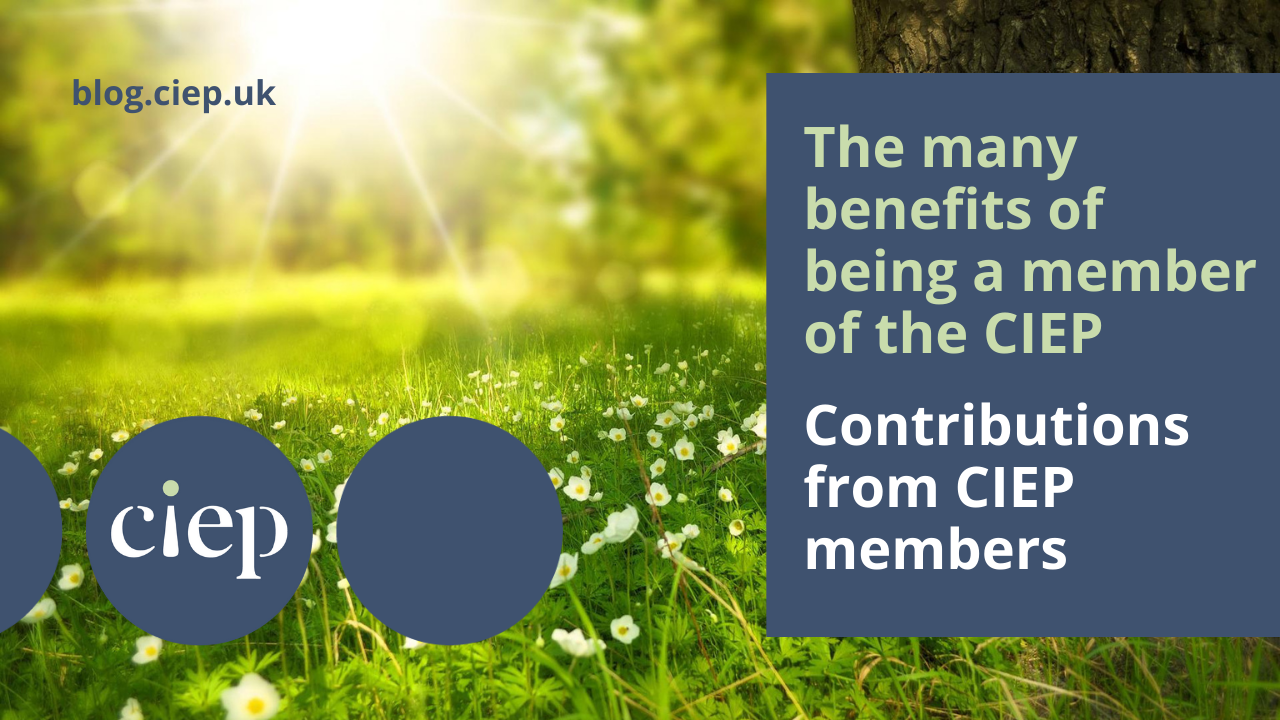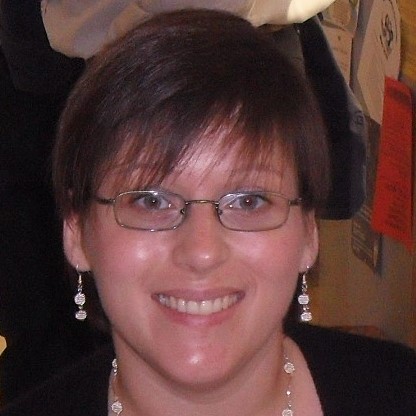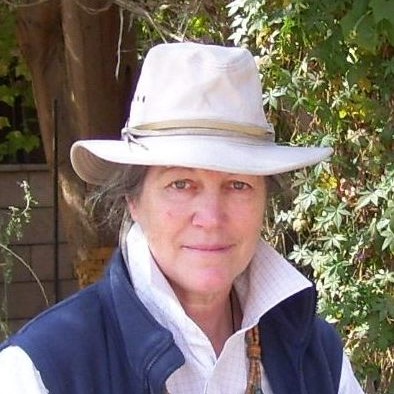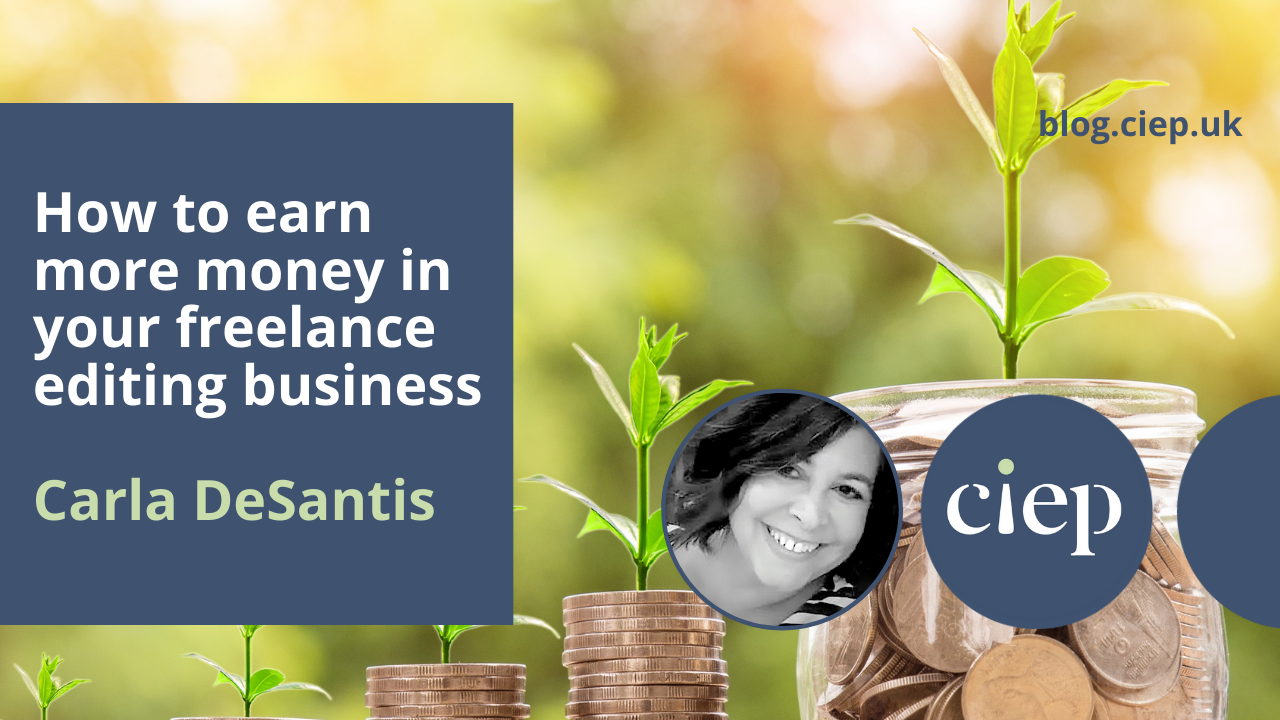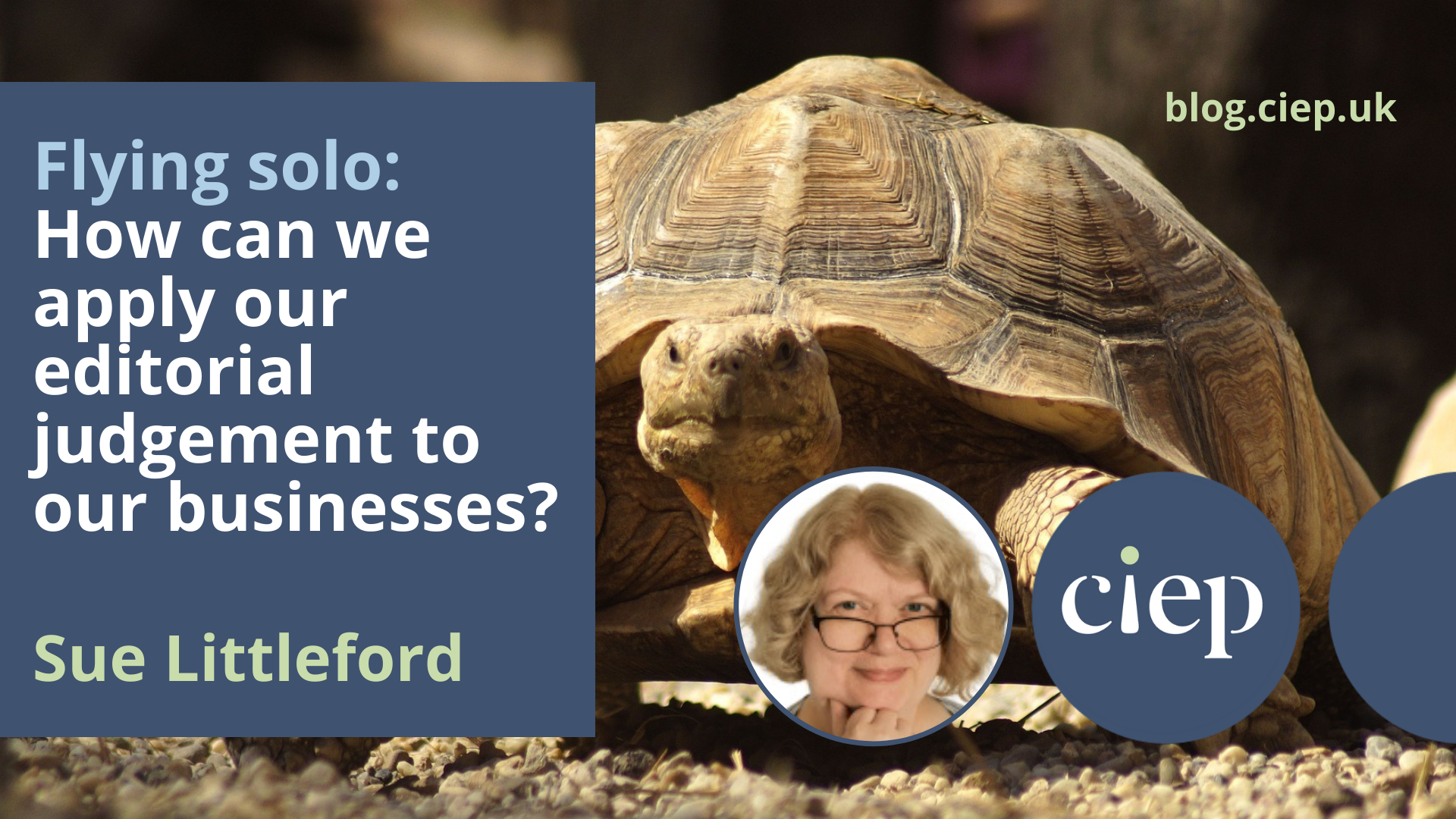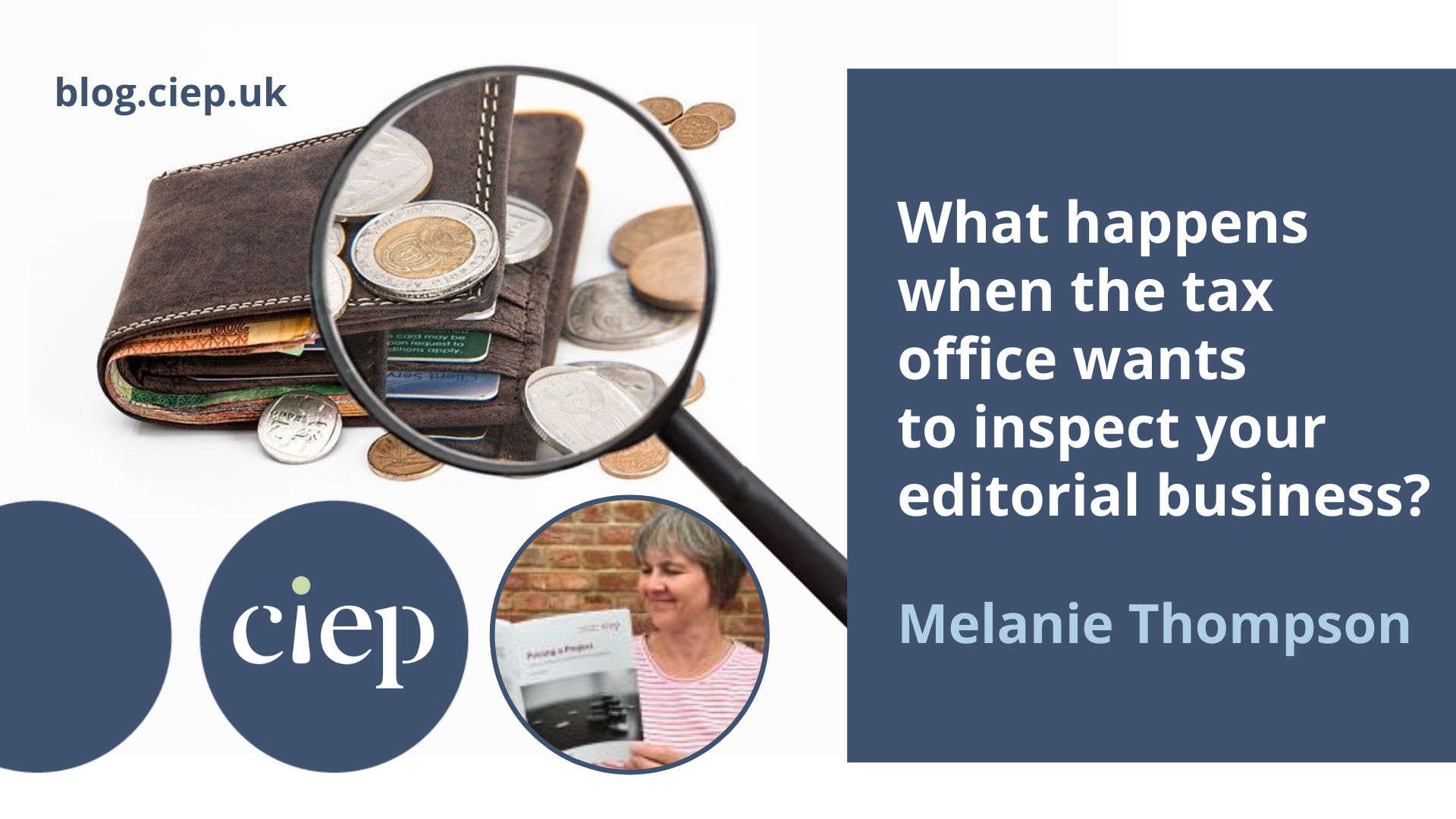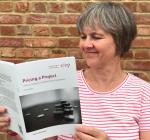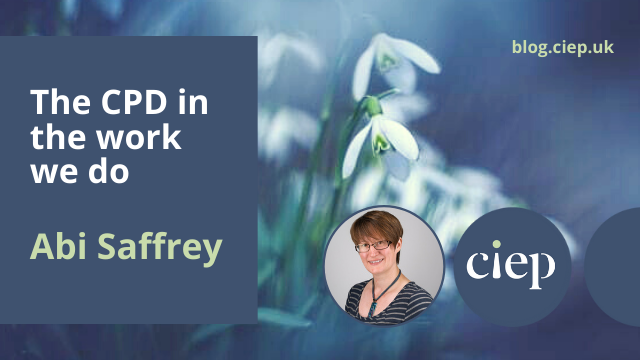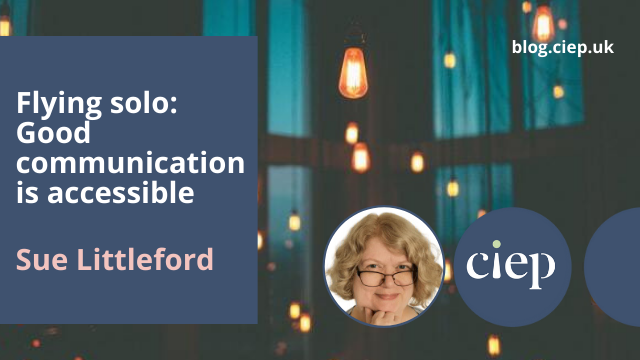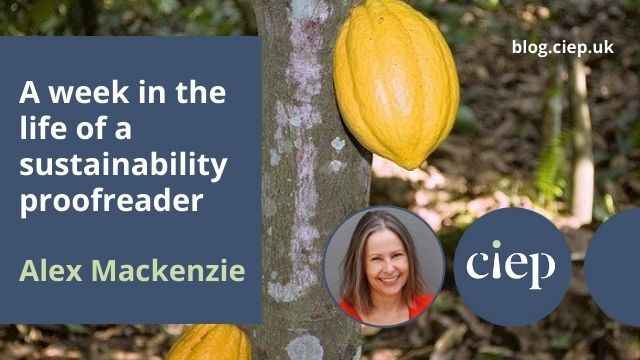When you come into this profession you may well think to yourselves: is this the end of my nights curled up in front of the fire with a good thriller? Am I going to be able to read my psychology newsletter with the same interest? In this blog post, Alex Mackenzie quizzes editors and proofreaders to find out if they’re still able to read for pleasure.
My preoccupation with this question led me to quiz CIEP members about their reading and whether the job has changed their habits or enjoyment in any way.
Everyone who contributed to this blog post said they have changed their reading habits since starting in the profession, and in these ways:
- what I read
- when I read
- where I read
- how much I read.
How my reading habits have changed
People who used to read a lot of fiction (up to a hundred books a year) now read less – or have even dropped it entirely – and may compensate with film. People who don’t work with fiction don’t necessarily feel an effect on their reading for pleasure, but possibly have noticed a slower speed when reading non-fiction. Others now select their reading to complement or distract from the job.
‘I wasn’t exactly keen to sit down with a novel after I’d turned my computer off for the day.’
‘I spend all day reading academic writing that’s usually not written too well, so by the time I’m done with the day’s work, I’m exhausted and my brain can’t take in another fact.’
‘When I worked in an office, I commuted across London for an hour each way so I used that time to read, but when I changed career and became a proofreader, working from home, I found that reading on the stairs between the kitchen and my spare-bedroom office wasn’t terribly practical. I’ve always read in bed before I go to sleep, but only for 10 or 15 minutes each night, so I found I wasn’t making much of a dent in my to-be-read pile.’
‘I’ve been struggling to focus on reading for pleasure for quite a number of years (too much work/stress).’
‘I’ve been an editor for 28 years. Historically, I have never been a fussy reader – as long as a book had a well-structured, compelling and plausible story, I was always able to ignore most other issues if not being paid to correct them (!), whereas at one time I prided myself on having finished every book I had ever started.’
‘As my workload has intensified and become more fiction-orientated, I have discovered that I don’t want to read anything too taxing when not working.’
‘My editing work is focused on business and marketing topics, which has allowed me to maintain my strong fiction-reading habit. What has suffered over the years is my professional reading. I used to read so many more books on language, editing and business. These days, I just don’t have the time.’
‘I have a pile of fantastic profession-related books waiting for me to find the energy to read them.’
‘My reading as a result of the job relates more to my translation work than to my proofreading and editing. Last year I was being mentored as an emerging literary translator of Welsh to English and, as I have no training in translation, I read a lot of books translated into English from various languages as a kind of CPD.’
How I feel about this
- I’ve lost some of the pleasure.
- I notice mistakes more.
- I tune into the author’s style straight away.
- I appreciate good writing.
The people who responded find themselves to be fussy fiction readers. Low-quality writing, an author’s idiosyncrasies and editorial oversights such as sloppy punctuation in dialogue are unwelcome distractions. With cheap ebooks available for 99p, fiction is accessible but often poor, so people now give up on a novel where they never would have done before.
‘My editing brain now hijacks the suspension of disbelief, which means that much of the pleasure I previously derived from fiction has vanished.’
‘I notice mistakes all the time. They just sort of jump off the page or screen. But when I’m reading something that was most likely edited, it’s more difficult. I know that everybody has really tight deadlines and horrendous workloads, so it’s not that the mistakes upset me, but reading something that’s full of errors makes me really, really tired because by the time I get to the end, I’ve mentally corrected each mistake I noticed.’
‘The thing that editing has ruined changed in my reading is that I notice an author’s style really quickly. From favoured sentence structures to being overly attached to commas, it takes me just a few pages to notice it.’
‘I used to read fiction – Arthur C Clarke, Dick Francis, C S Forester – but apart from the latter (whose prose I enjoy for its own sake) I’ve more or less stopped reading fiction, mainly because learning to edit fiction has reduced my suspension of disbelief to near-zero.’
‘My shelves are now littered with books I couldn’t be bothered to finish as they were so poorly constructed/written – including some by well-known and successful authors.’
‘So for me to like [it], there must be some phenomenal writing going on.’
What am I doing about it?
- I just ‘shake it off’ and live with it, compartmentalising the day job.
- I choose more carefully (either for pleasure or for professional development).
- I joined a local book group.
- I stop reading if I don’t enjoy it.
- I appreciate quality writing.
People realise the importance of regular reading; developmental editors especially need to read widely. We can be coin-operated, switching our editing brain on and off, and we make a big effort to specialise in areas that don’t trespass on our reading for pleasure. We may be able to compartmentalise our minds, and shifting physical positions helps too – keeping a foot in academia at the desk, critiquing fiction on the bean bag. And sometimes a complete change of routine forces a book upon us, and we find ourselves whisked away by the magic.
‘For a while, I accepted that this was just how things were.’
‘I’ve consciously decided not to edit fiction because I want to keep enjoying reading fiction in my free time. It’s the thing that keeps me going in tough times, and the last thing I do every day before bed.’
‘Were I to edit fiction, I wouldn’t be able to lose myself as easily in my free reading.’
‘Following a house move, I found a local book group and signed up, thinking it would encourage me to read more and in new areas. It was all fine for the first book (yes, I was cram-reading in the hours before the meeting); then, with exquisite timing, lockdown came along. We continued to meet online but I found reading almost impossible during that first period of confinement (there was so much on Netflix to watch, after all) so I missed a couple of sessions. I picked it up again earlier this year and I’m so glad I did. I’ve read some fabulous books that I wouldn’t have even considered normally, and I’ve made some new friends.’
‘I took this book away with me during the first year of Covid and it completely carried me off into another world. The fact that it was linked with a highly infectious disease probably helped!’
‘In informal, unedited writing, I can just shake it off (after all, I know my writing is also bound to be full of mistakes). To combat this, I’m picky about the stuff I read, from news websites to novels. I choose sources with writing that is generally carefully edited and produced over a longer time, I don’t read any self-published novels, and I tend to favour authors who have been writing for longer. I have stopped reading some authors just because of an annoying tic in their writing. I just choose my authors with care. When a book is written really well, the mistakes fade into the background because my mind is filled with vivid imagery. My tiredness fades away because the book is giving something back. Some books manage this with plot, some are really funny, some have characters who feel truly alive, some are like paintings done with words, some are written with almost painful empathy, and the very best manage to do it all.’
‘I read fiction almost exclusively (non-fiction tends to be limited to a few articles a week), and usually fiction that isn’t too heavy. I also like videogames with good stories, where I can zone out and read a few lines at a time. [Some] are brilliantly written games that have a lot of stories to tell, but you’re only reading a little every few minutes, so it’s not so exhausting.’
‘I churn through vast quantities of best-selling crime fiction and thrillers, and various other types of commercial fiction, which, apart from allowing me to switch off, also keeps me abreast of the latest trends and conventions in the various genres. And of course, finding out whether I guessed correctly how they’re going to end or whodunnit is always entertaining – I’m rarely wrong, which is, I suppose, an occupational hazard, but doesn’t usually detract from my overall enjoyment of the book.’
‘I save more demanding works of literary or ‘must-read’ fiction for quieter periods of work or for holidays, when I can give them the attention they deserve.’
‘I read a lot of fantasy and science fiction, as well as 19th- and early 20th-century literature or stories that take place during those times. I like to be taken out of my everyday life. Sometimes I like a slow, reflective pace (especially in the winter) and other times, I like a fast, adventurous pace.’
‘If the story is good enough I won’t think.’
Reading choices mentioned:
‘Anything about how things around us, and about us, work.’
‘[certain authors] for when I want to shudder/marvel at the universality and resilience of the human condition, [others] for when I want to marvel at a writer’s ability to unfurl, with tenderness, the gender roles and hypocrisies of people in a seemingly moral society. And love that makes you weep.’
Videogames: ‘Sunless Sea’ and ‘Sunless Skies’
Authors: Hugh Aldersey-Williams, Jane Austen, Rutger Bregman, the Brontës, Bill Bryson, David Eagleman, Giulia Enders, C S Forester, Neil Gaiman, Kevin Hearne, N Mahfouz, Naomi Novik, Maggie O’Farrell, Herman Pontzer, Catherine Poulain, (as translated by Adriana Hunter), Kate Quinn, John Scalzi, Ali Smith, John Steinbeck, Ian Tregillis, Anthony Trollope, Ali Turnbull’s blog.
Wrapping up
The bottom line is that there are occupational hazards, but good writing is worth the distractions. And we appreciate how editors invisibly facilitate our reading for pleasure!
Without contributions from CIEP members, this would be a short and dull read! My thanks go to: Caroline Petherick (especially for editorial assistance), Riffat Yusuf, Erin Brenner and Melanie Thompson, among others who prefer to remain anonymous. Thanks also to those in Cloud Club West who incidentally dropped me a tasty morsel!
About Alex Mackenzie
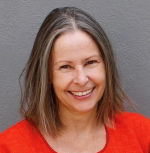 Alex Mackenzie is a British copyeditor and proofreader living in Asturias, Spain. She moved into editing from a 30-year career in international schools across nine countries. Alex is a published English language teaching (ELT) author with a Master’s degree in education. Areas of specialism are ELT, education, sustainability and meditation, adding creative non-fiction and fiction. She is a Professional Member of the CIEP.
Alex Mackenzie is a British copyeditor and proofreader living in Asturias, Spain. She moved into editing from a 30-year career in international schools across nine countries. Alex is a published English language teaching (ELT) author with a Master’s degree in education. Areas of specialism are ELT, education, sustainability and meditation, adding creative non-fiction and fiction. She is a Professional Member of the CIEP.
 About the CIEP
About the CIEP
The Chartered Institute of Editing and Proofreading (CIEP) is a non-profit body promoting excellence in English language editing. We set and demonstrate editorial standards, and we are a community, training hub and support network for editorial professionals – the people who work to make text accurate, clear and fit for purpose.
Find out more about:
Photo credits: coffee and cake by Pixabay, couple reading by Andrea Piacquadio, books by a window by Lum3n, all on Pexels.
Posted by Harriet Power, CIEP information commissioning editor.
The views expressed here do not necessarily reflect those of the CIEP.











